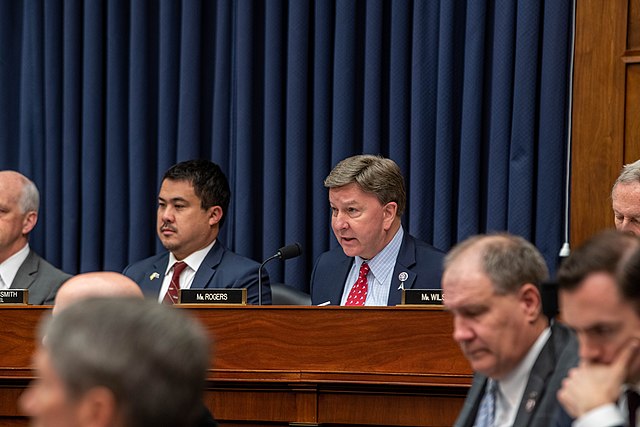We can all breathe a sigh of relief (for now). The NDAA is through the House. Everyone’s favorite must-pass bill, which predictably got a whole lot more culture-war-y after it left the House Armed Services Committee, passed the chamber in a narrow (by NDAA standards) party-line 231-196 vote yesterday.
Whether the Senate passes its version and it goes to reconciliation and a vote before the government shuts down next month remains to be seen, and all eyes in DC are on a second CR to keep things running. So, really, who knows what happens now? Those congresspeople sure know how to keep us on our toes.
Full SPEED ahead: On the defense front, the bill the House passed hasn’t changed much since it came out of the House Armed Services Committee. It pretty much sticks to the Pentagon’s request with an $848B topline, and it’s still going at full SPEED. (Get it?)
For those who don’t get our jokes: The SPEED Act, a bipartisan bill championed by HASC Chairman Mike Rogers (R-AL) and ranking member Adam Smith (D-WA) to reform defense acquisition and requirements, remained the star of the show. In a statement, Rogers said, “The FY26 NDAA cuts red tape, streamlines bureaucracy, and refocuses acquisition on its most important mission: getting our warfighters what they need when they need it.”
Sticking points: However, even Smith couldn’t bring himself to vote for the final version of the House NDAA. “We didn’t get any of the amendments and the debates that we wanted; not a single solitary one,” he said before the vote. “Meanwhile, all manner of different issues that are pure culture war partisan issues were allowed in.”
Here were some of the sticking points:
- Republicans shot down a Democratic push to debate the use of the National Guard and military in domestic law enforcement operations. Looking at you, Memphis.
- The bill added six amendments focused on transgender people, including a ban on the Pentagon’s health insurance program (TRICARE) covering gender-related medical treatment.
- Republicans cut renewable energy programs, endangered species protections, and poo-pooed the military’s transition to hybrid or electric vehicles (which the Air Force thinks would be much more fun to launch missiles at).
Common ground: But worry not, there were also some amendments added that have bipartisan support, notably on the foreign military support front.
The House:
- Added an amendment from Reps. Chip Roy (R-TX) and Gregory Meeks (D-NY) to repeal the congressional authorizations (AUMFs) that green-lit the Gulf War and the 2003 invasion of Iraq. That passed in a 261 to 167 vote, which could also make it harder for the executive branch to bypass Congress on military actions.
- Shot down Rep. Marjorie Taylor Greene’s (R-GA) amendments blocking funding for Ukraine and the Taiwan Security Cooperation Initiative. The House NDAA included $400M for Ukraine, but funding was left out of the defense appropriations bill. (The Senate Armed Services Committee added $500M for military aid, and defense appropriators tacked on a much bigger $800M.)
- Added an amendment allowing the NSA to share cyber threat information with the private sector to boost cybersecurity in the telecommunications space (remember that whole Volt Typhoon thing?).
The bill will now be tabled until the Senate votes on its version next week, but the clock is ticking. If the two chambers can’t reconcile their two versions in time, we might be headed for a second straight year of defense spending under a CR. It’s fine. Everything’s fine.

